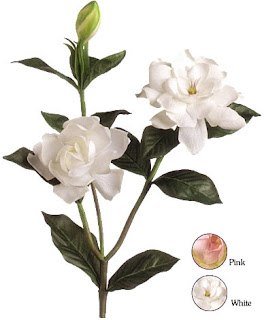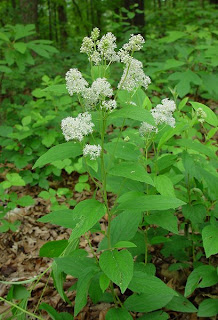GARDENIA

Latin Name: Gardenia florida
Alternate Names: Happiness Herb, Cape Jasmine, Zhi Zi (Chinese), Gardenia Fruit
Family: RUBIACEAE
Parts Used: Fruit.
Properties: Alterative, Antibacterial, Antifungal, Antiphlogistic, Astringent, Cholagogue, Febrifuge, Hypotensive, Refrigerant, Stomach Tonic.
Internal Uses: Abscess, Bloody Urine, Cystitis, Delerium, Emotional Blockage, Fever, Headache, Hepatitis, Hypertension, Insomnia, Irritability, Jaundice, Liver Stagnation, Nosebleeds, Rectal Bleeding, Restlessness, Ulcers, Urinary Infections
Internal Applications: Tea, Tincture, Capsules.
Gardenia clears heat and calms irritable emotions. It drains dampness and cools the blood -- thus, it stops bleeding.
Gardenia clears heat and calms irritable emotions. It drains dampness and cools the blood -- thus, it stops bleeding.
Topical Uses: Abscess, Bruises, Injury, Irritability, Sprains, Swellings
Topical Applications: Poultice for bruises, sprains, abscesses and injuries. When used topically it also relieves swelling and congested blood due to trauma. Essential oil used in perfume. The aroma of the flower calms the heart.
Culinary uses: Fruit is used in Thailand to make a food coloring. Essential oil used to flavor teas.
Energetics: Bitter, Cold, Dry.
Chemical Constituents: Flavonoids (crocin, chlorogenin, gardenin), iridoids, sitrosterol, ursolic acid, mannitol, tannin.
Contraindications: Do not use the essential oil of this plant internally.
Comments: One of the world's most beautifully scented flowers, Gardenia includes the species Gardenia jasminoides, which is used interchangeably with Gardenia florida.

